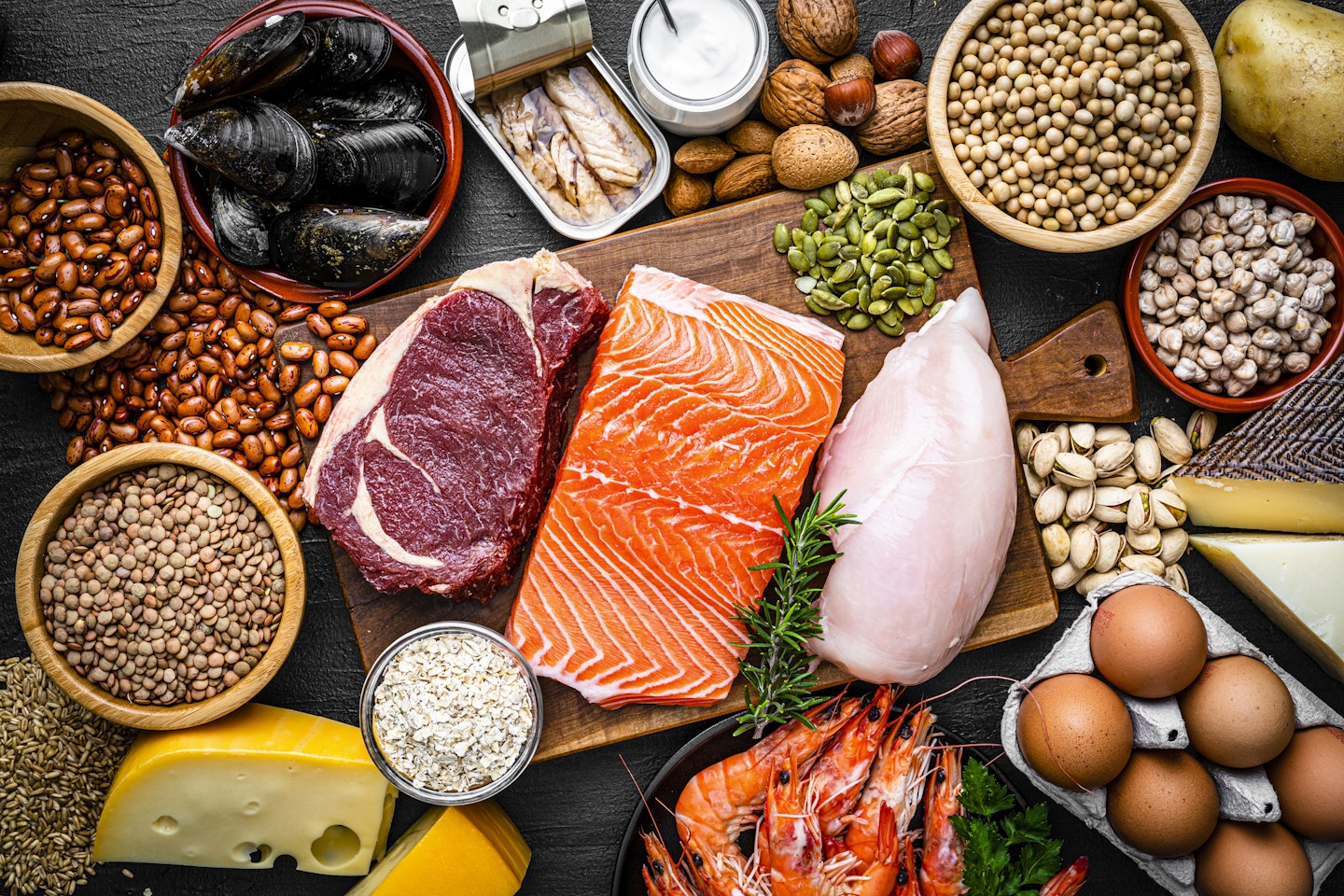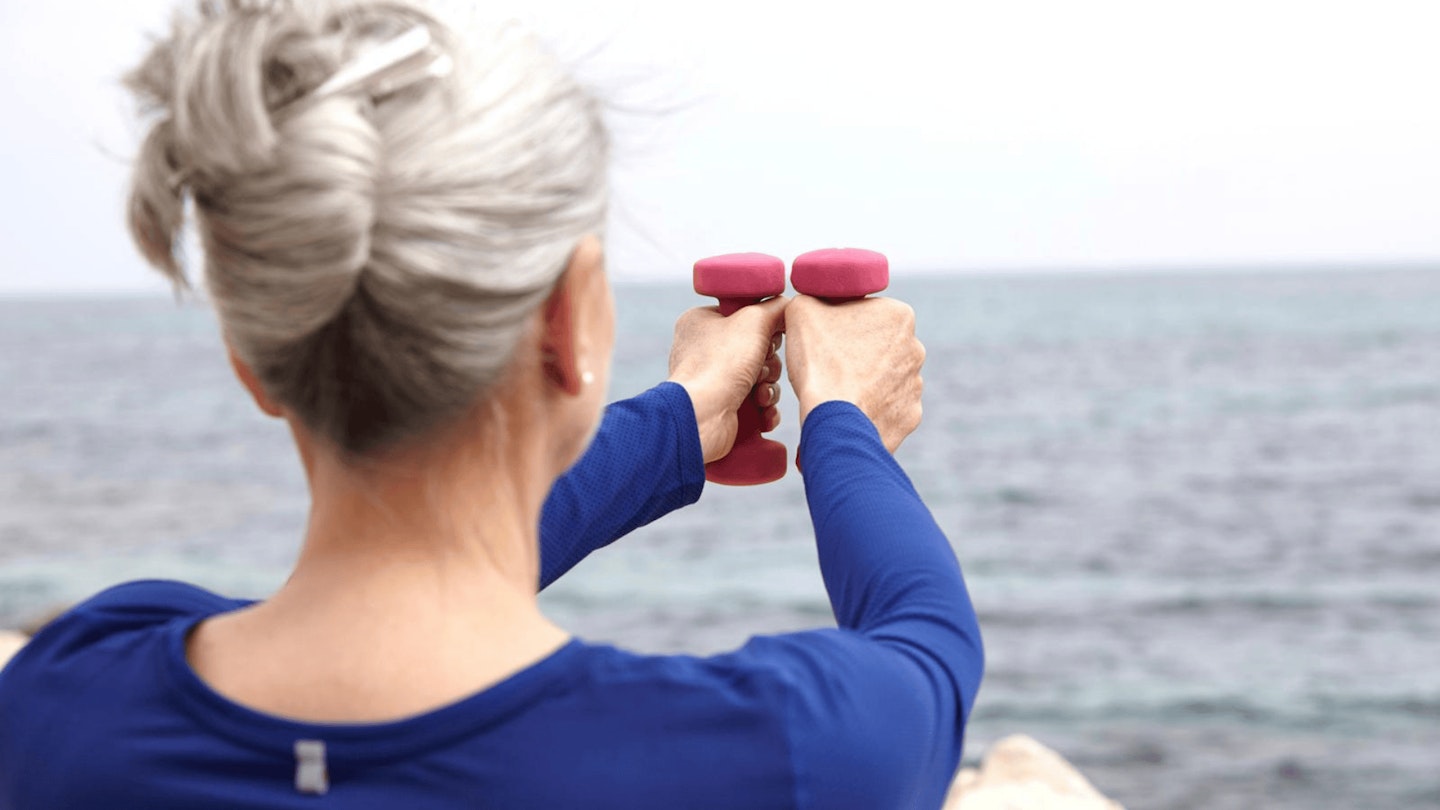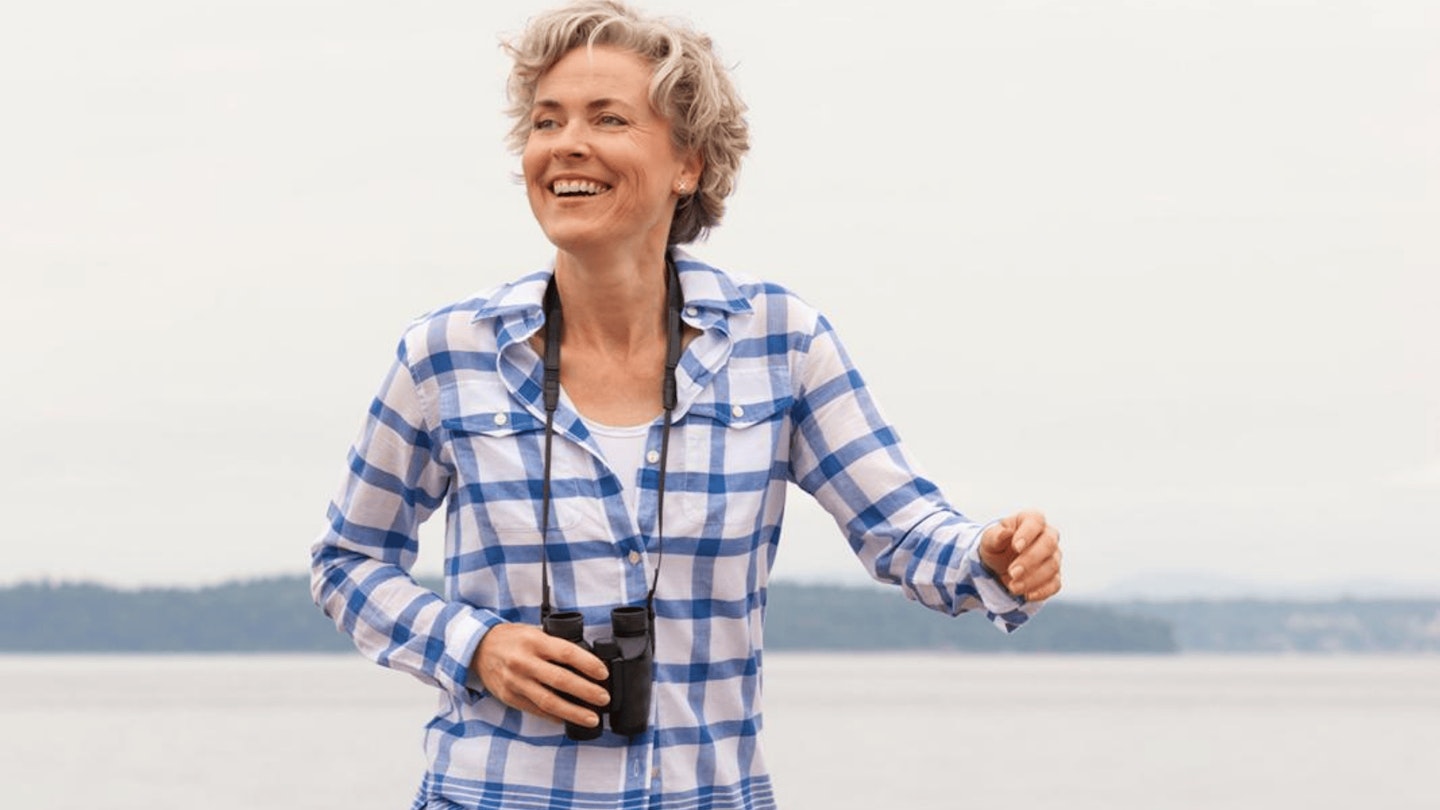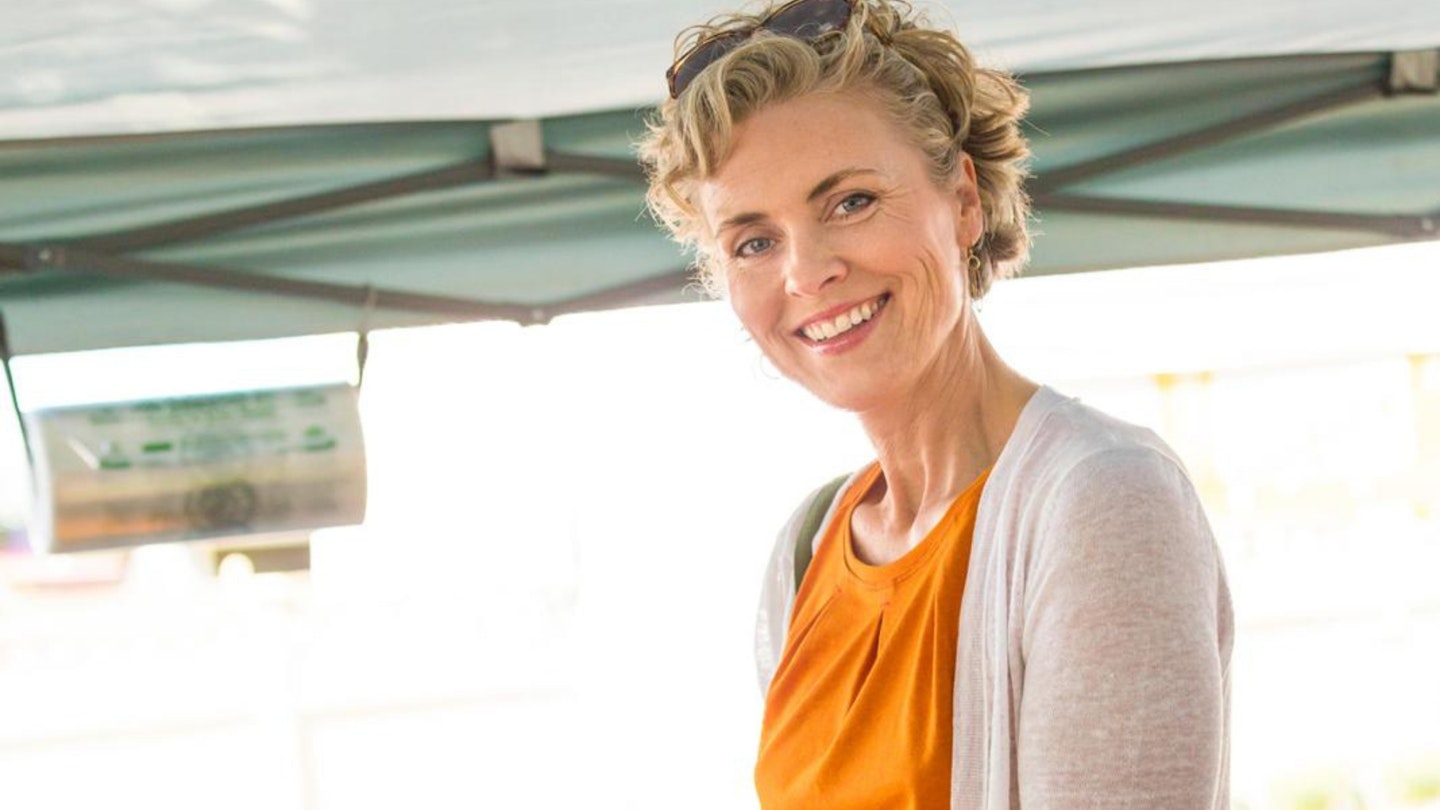With news that GPs could start offering fat loss injections to curb obesity, remember to first try healthy and natural ways to lose weight
For more professional insight, we spoke to two experts in the field to explore the best ways to lose weight naturally – and keep it off. Eleanor Rees is a qualified performance nutritionist and Issy Garrard is a fitness and yoga instructor. Both of them work with a range of fitness and health goals which include weight training for women, weight loss, improving mobility, creating diet plans, introducing yoga for beginners and much more.
Following is a list of the best methods and practices to lose weight naturally compiled with their expert guidance and pro tips.
How to lose weight fast naturally
1. Eat more protein

“Protein keeps you fuller for longer, which is why it’s recommended above other macronutrients for weight loss,” says performance nutritionist Eleanor Rees. Eating enough protein during menopause and beyond is important, as this is the biggest time for muscle mass decrease. While, the recommended daily amount is 0.8g per kg of body weight, the amount of protein women over 50 need is more - 1.15g per kg. So a women weighing 11 stone, for example, should aim for 70.2 – 105.3g. Read on to find some of our favourite protein-filled foods to up your intake.
Protein powerhouses:
-
200g Prawns – 30g protein & 131 Kcal
-
120g Chicken breast – 30g protein & 133 Kcal
-
145g Fillet steak – 30g protein & 224 Kcal
-
290g 0% Greek yoghurt – 30g protein & 157 Kcal
-
260g Tofu – 30g protein & 261 Kcal
Top tip: “Products labelled ‘high protein’ tend to be high in sugar and other non-relevant ingredients, so check the food label,” Eleanor says.
2. Build strength

“Strength training benefits everybody,” says fitness and yoga expert Issy Garrard. This is because it essentially builds muscle mass. “From the age of thirty, unless muscles are worked, muscle loss and wastage will set in.” This is especially important for perimenopausal and menopausal women. Issy says, “Often during these stages of life there is a tendency to gain weight, especially around the abdominal area.”
If using weights at a gym doesn’t appeal, don’t worry. “Body weight exercises such a variety of plank exercises, as well as squats and lunges, will help increase muscle mass,” says Issy.
3. Get enough sleep

Sleep duration is linked to two important appetite-regulating hormones. Insufficient sleep leads to an increase in a hunger hormone called ghrelin, which increases our appetite, while decreasing a satiety hormone called leptin, which tells us when we’re feeling full. Unsurprisingly, studies have linked sleep deprivation to weight gain. Everyone needs different amounts of sleep, but the NHS recommends between seven and nine hours a night for adults. So if you're wondering how to lose weight fast naturally, sleeping enough is the simplest step to take.
If you have trouble sleeping, experts recommend staying off your devices at bedtime to avoid blue light, not drinking alcohol or caffeine later on in the day, having blackout blinds and making sure your bedroom isn’t too hot (the UK Sleep Charity recommends between 16-18C for healthy adults).
4. Look out for hidden sugars

“When reading food labels for sugar, it’s important to understand the meaning of the label so you can make the best choice,” says Eleanor Rees. “’No added sugars’ most commonly means no added sucrose (table sugar), but that’s only one type of sugar. Other types of sugar include fructose, maltose, glucose, dextrose, honey, treacle, maple syrup, molasses, golden syrup, raw sugar, and concentrated fruit juice. These don’t necessarily need to be disclosed as ‘no added sugar’ by manufacturers, but they still have the same effect on the body as other sugar.”
Labels that say ‘only contains natural sugar’ can sometimes have fewer calories than added sugars but Eleanor says, “They still have the same risks for your teeth. ’Reduced sugar’ contains at least 25% less sugar than the normal version, but if the normal version is very high in sugar, this may still be high in sugar. The best definition to look for is ‘low sugar’, as it contains no more than 5g of sugar per 100g of the product.”
5. Interval training

“There is a lot of research that short but intense exercise classes (strength-based cardio and HIIT, or high intensity interval training) can lead to more success with weight loss over longer, sustained periods of exercise,” says Issy Garrard. Try a spin class or a circuit class, but if that feels too extreme, interval walking (alternating fast and slow-paced walking) can help. Take a brisk walk where your heart rate is up and you are breathless enough so that a sustained conversation is difficult.
Try this:
-
5 minutes warm up at a steady pace (5/10 effort)
-
Brisk walk for 2 minute, swinging your arms by your side for added momentum (7/10 effort)
-
Steady pace for 1 minute
-
Repeat 4 times
-
3 minute steady cool down
Build up to 20-30 minutes three times a week, then build up the speed of your faster walks and include inclines or hills.
6. Manage your stress
An excess of the stress hormone cortisol stimulates our fat and carbohydrate metabolism, which leads to a surge of energy. While this can be helpful in short-term situations, it also increases our appetite, which can lead to overeating. High levels of cortisol can also slow down metabolism, while studies show that we’re more likely to reach for the salty, fatty and sugary foods when stressed. Mindfulness techniques like meditation and breath work, keeping a stress diary to know your triggers, and reaching out to others can all help combat stress.
7. Avoid ultra-processed foods
“Ultra-processed foods have five or more ingredients,” says Eleanor Rees. “They tend to include many additives and ingredients that are typically non-naturally occurring, such as preservatives, emulsifiers, sweeteners, and artificial colours.” Examples include ice cream, ham, sausages, crisps, mass-produced bread, breakfast cereals, biscuits, carbonated drinks, fruit-flavoured yogurts and instant soups. “These foods are often higher in saturated fat, salt and sugar, all of which have negative health implications and often much higher calorie density, resulting in weight gain,” Eleanor says.
Instead, aim for a wholefood diet, which essentially means food in its original form. “What is most important for a healthy diet is the type of carbohydrate you choose,” says Eleanor. “Wholefoods include a higher level of fibre, which controls appetite and blood glucose levels and this will keep you full for longer. Wholefoods release energy slower than sugary foods and with less risk of tiredness.” Try wholegrain/wholemeal pasta, bread and rice, fresh fruits and vegetables and nuts.
8. Eat mindfully

Mindful eating is being fully present when you eat, savouring your food and becoming more aware of your body’s cues (i.e. when you’re hungry and feeling full). It can help you make more conscious food choices in the future so you eat more fresh, healthy and home cooked meals. Eating mindfully has been shown to have significant effects on weight loss, while also helping to reduce emotional and binge eating.
How to do it:
-
Acknowledge where the food is from and who prepared it
-
Engage all the senses and become aware of physical sensations
-
Savour small bites and chew thoroughly
-
Eat slowly to avoid overeating
-
Don’t skip meals
Meet the experts
Eleanor Rees is a qualified performance nutritionist with a Masters degree in Sports and Exercise Nutrition. She was born a Coeliac and eventually developed a deep interest in nutrition and diet and found a passion in sharing her knowledge with others. Some areas of her expertise are assisting with weight loss, helping with muscle gain or guiding those transitioning from amateur to professional sport status.
Issy Garrard is a fitness and yoga instructor with 18 years of experience as a PE teacher and 25 years of experience performing in various sports. She has a HFE level 3 diploma in yoga and offers three different types of yoga classes - performance yoga, functional yoga and well-being yoga for her clients at Issy Health Fitness Yoga, a Private studio that she runs in East Molesey.
